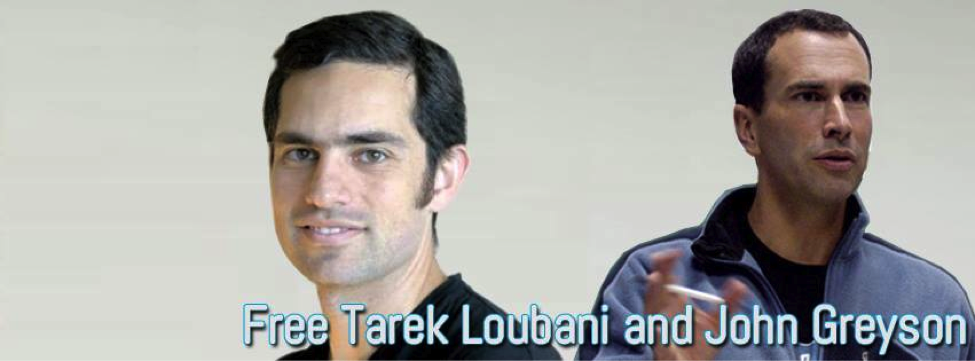Today’s Ask the Hub is a little bit different. Rather than responding to a question that we receive from you, the readers, I’m answering one that has been on the minds of many of us here at York University and in academia across the country. "How should we respond/react to the August 16th arrests of Professor John Greyson and Dr. Tarek Loubani in Egypt?”
The two men were travelling to Gaza via Egypt when they were arrested. They have been detained in a Cairo jail since that time, without charges. Their story is fairly well-known, but for a summary of the situation see this fact sheet or check out John and Tarek’s own statement. A brief breakdown from the fact sheet says, “Greyson and Loubani were in Cairo on their way to Gaza, where Loubani was to participate in a medical collaboration that has been established between the University of Western Ontario and the Emergency Department of Al Shifa Hospital (Gaza’s largest hospital). Loubani has previously taken physicians to teach local doctors advanced cardiac life support and advanced trauma life support. Greyson planned to work on a movie after accepting Loubani’s invitation to observe his work at the hospital.”

The Canadian Homelessness Research Network (CHRN) is based at York University. I’m a current doctoral student and contract faculty in the Faculty of Environmental Studies, CHRN director Stephen Gaetz is an Associate Professor in the Faculty of Education, and all of us working here are employed by, or students of, York. For us the connection goes one step closer than just being at York. Homeless Hub Research Assistant, Kami Chisholm, who will be developing a series of films for us this year, is one of John’s students; she came to York, in part at least, to work with him.
But we are also all knowledge producers here. We are researchers. We feel that research is important to ending homelessness. We feel a connection to the fact that John and Tarek were heading to Gaza to conduct research and mobilize knowledge on the issues important to them. Our blog is entitled “Research Matters”. And this does matter. It is important that researchers are able to carry out their work without fear of persecution or arrest. It matters because we need to build and support an international research community to help end some of the global issues; events like this will make it harder for other researchers to get permission to travel to countries experiencing strife. Yet, it is in those countries that we may be able to best use our privileged positions as academics in the Global North to share information, support the work of local communities and help create change.
Faculty of Environmental Studies Professor Justin Podur says that this case should matter to the broader research community.
"Many societies recognize freedom of information as an important good, which is why there are committees and international laws protecting journalists who travel to do their work. Researchers who study issues in more depth have to take the same kinds of risks as journalists, but protections for them are much less developed. As a community, researchers should think about how to better protect individuals like Professor Greyson and Dr. Loubani, whose research and international academic collaborations fall afoul of repressive states."
So how should we respond/react? With anger, with conviction, with action.
- Stay Informed. Follow Justin Podur’s blog or his Twitter account @justinpodur, John’s sister Cecilia’s Twitter account @cgreyson or the Free Tarek and John website. There is also a Facebook group and the Twitter hashtag to watch is #freetarekandjohn
- Sign the petition. As of this writing the petition from Change.org had over 147,000 signatures. Let’s try to grow that number exponentially. Share the petition with your friends, family, colleagues, faith community, social media connections etc.
- Write to a key figure. The Free Tarek and John website provides sample letters to Prime Minister Stephen Harper, Interim Egyptian President Adly Mahmoud Mansour and Public Prosecutor (Egypt) Hesham Mohamed Zaki Barakat. The site provides a link to free faxing services and don’t forget, letters to federal Canadian politicians don’t require postage.
- Spread your knowledge. On Sunday, September 29th the case was held over for 45 days meaning it could be mid-November before John and Tarek are charged or have a chance at a trial (under the current state in Egypt they can be held for two years without charges). Long gaps in a case can make it harder to maintain media attention and public awareness, but both of those are needed to help create the pressure required for John and Tarek’s release. Talk about this with everyone you know and encourage them to take action as well.

